








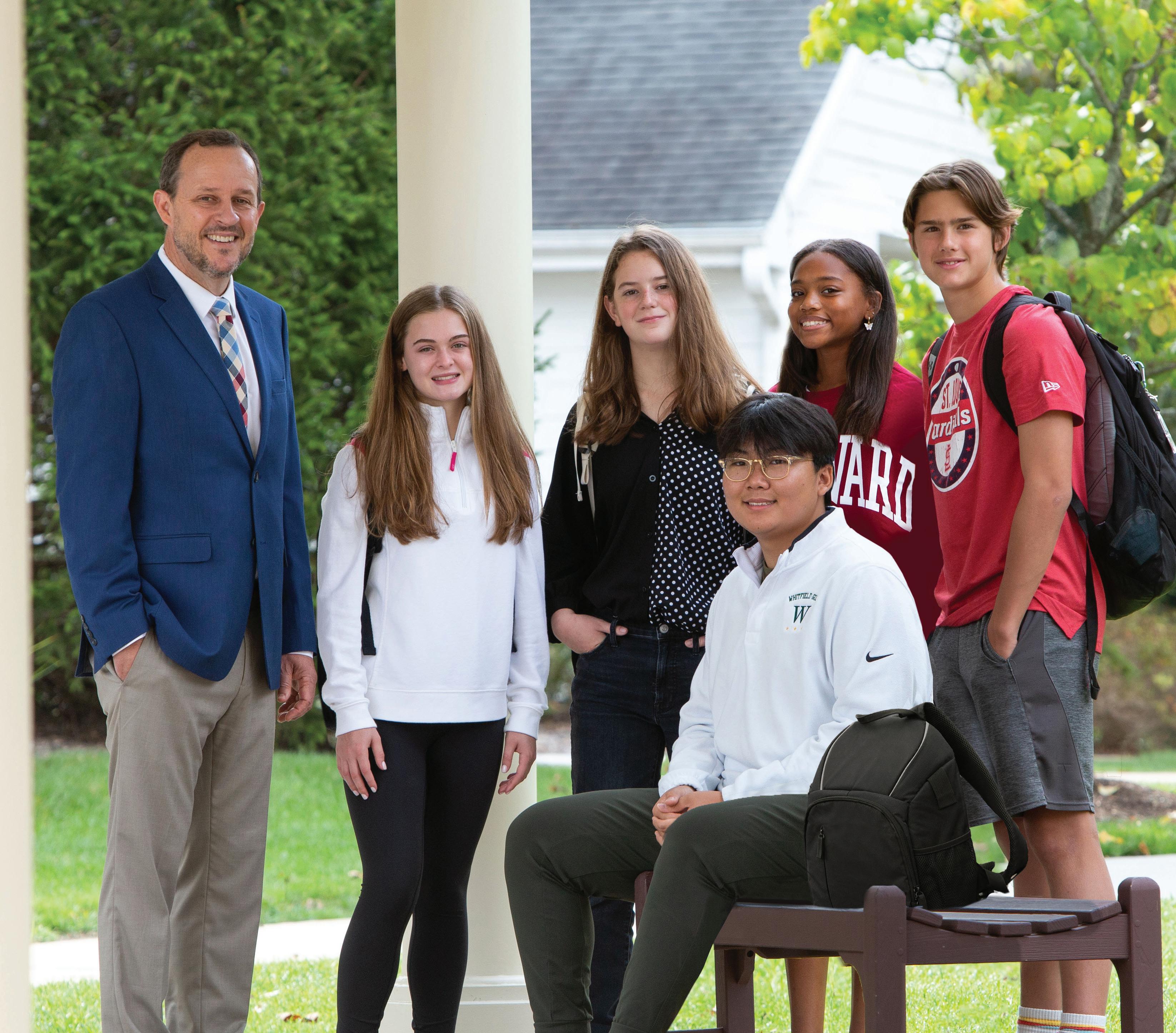
At Whitfield, we inspire our students to grow into the best version of themselves.
We challenge our students to try new things, to take risks and make mistakes, to grapple with difficult ideas, to get comfortable with being uncomfortable. And we give them the support they need to discover the passions and talents and grit they didn’t know they had.
We prepare our students to confront unforeseen challenges, to explore fields of study that are only now in their infancy, to thrive and succeed in careers that don’t yet exist.
We teach our students to learn with and from each other within a community of trust, learning not only to express their ideas and share their thinking, but also to listen carefully to others and consider a diverse range of perspectives and experiences.
Through our Habits of Mind & Heart curriculum, we encourage our students to think critically and ask questions, to lead lives of integrity, to appreciate and embrace the diversity and complexity of the world in which they live.
We believe in the limitless potential of all students. Whether they are exploring a new subject or diving deeper into a life-long passion, we foster our students’ belief in themselves, and belief in their capacity to grow into the people they want to be.
Won’t you join us?
Chris Cunningham, Ph.D. Head of School
Whitfield School cultivates ethical, confident, successful students in a community of innovation, collaboration, and trust.
Classrooms are dynamic, engaging, technology-forward spaces. All students take required courses in English, math, science, social studies, and world languages every year. Our student-entered academic program combines a liberal arts curriculum with strong preparation in 21stcentury skills like critical thinking, leadership, creativity, and communication. Our goal is to prepare students for the rigors of college and the responsibilities of citizenship.

Technology and digital literacy are not add-ons at Whitfield, but rather woven into our pedagogy and curriculum. Our 1:1 laptop program means that students and faculty move seamlessly from work on their computers to seminar discussions and hands-on work. Our technology team works with our department chairs and grade level coordinators to integrate topics such as algorithmic thinking and digital citizenship into our academic and advisory curricula. At the same time, our no cellphone policy means that students learn how to make healthy choices about when to use their devices—rather than being ruled by them.
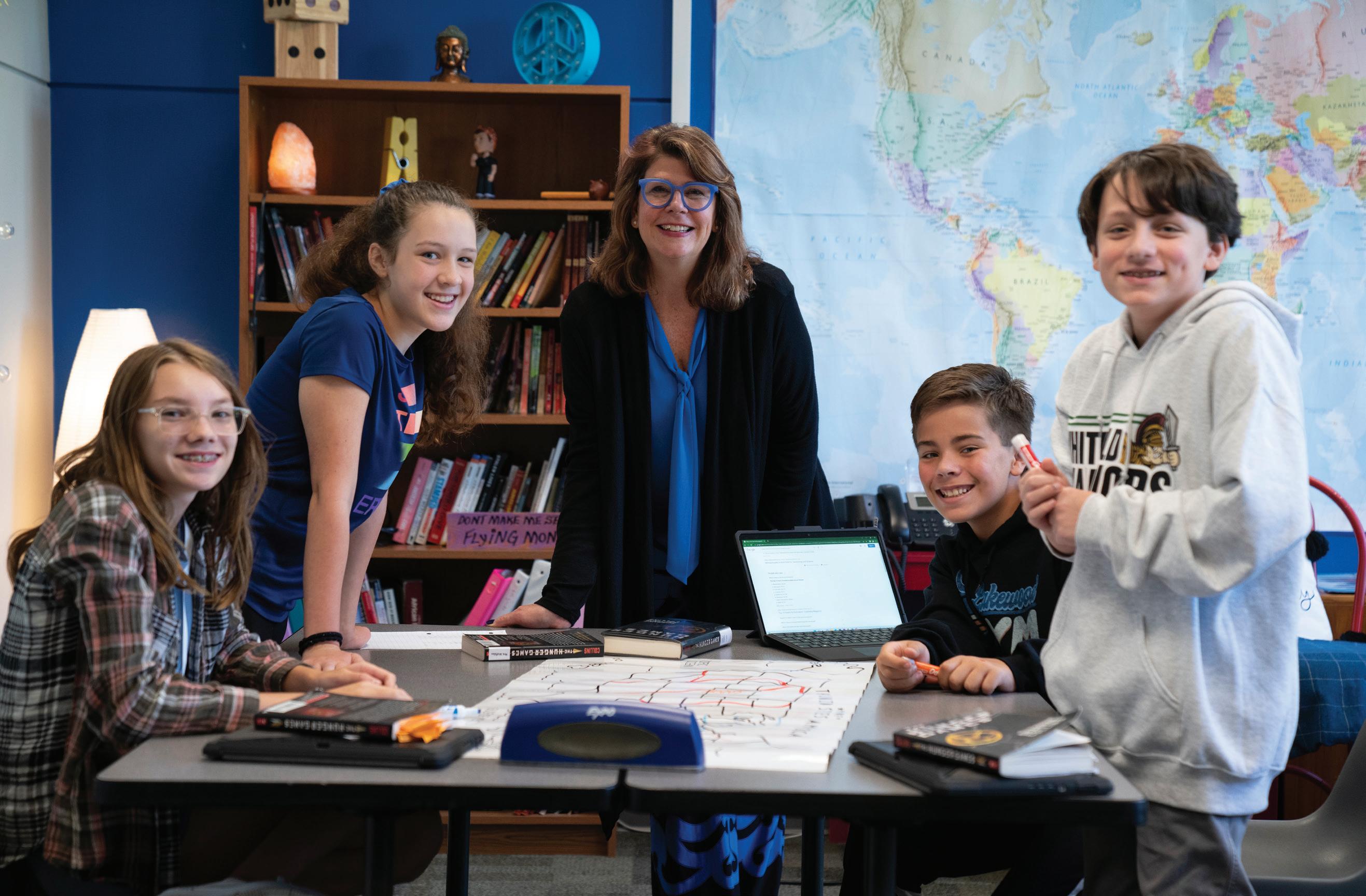
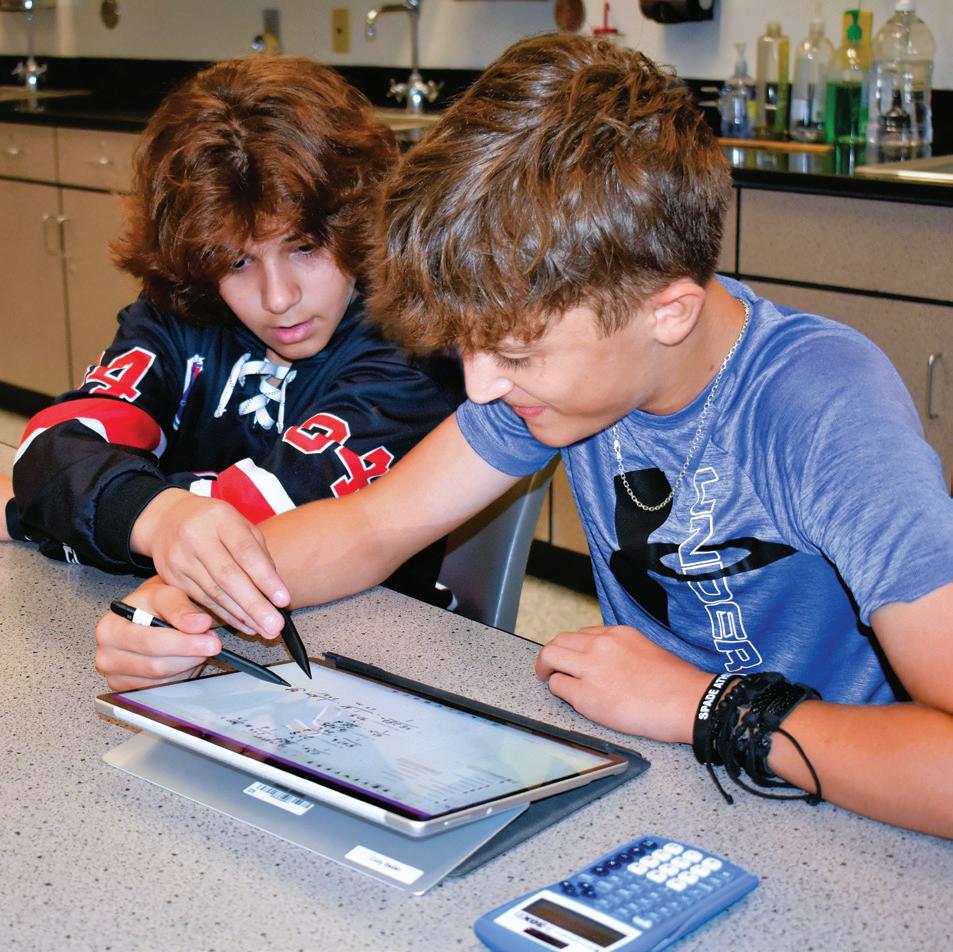
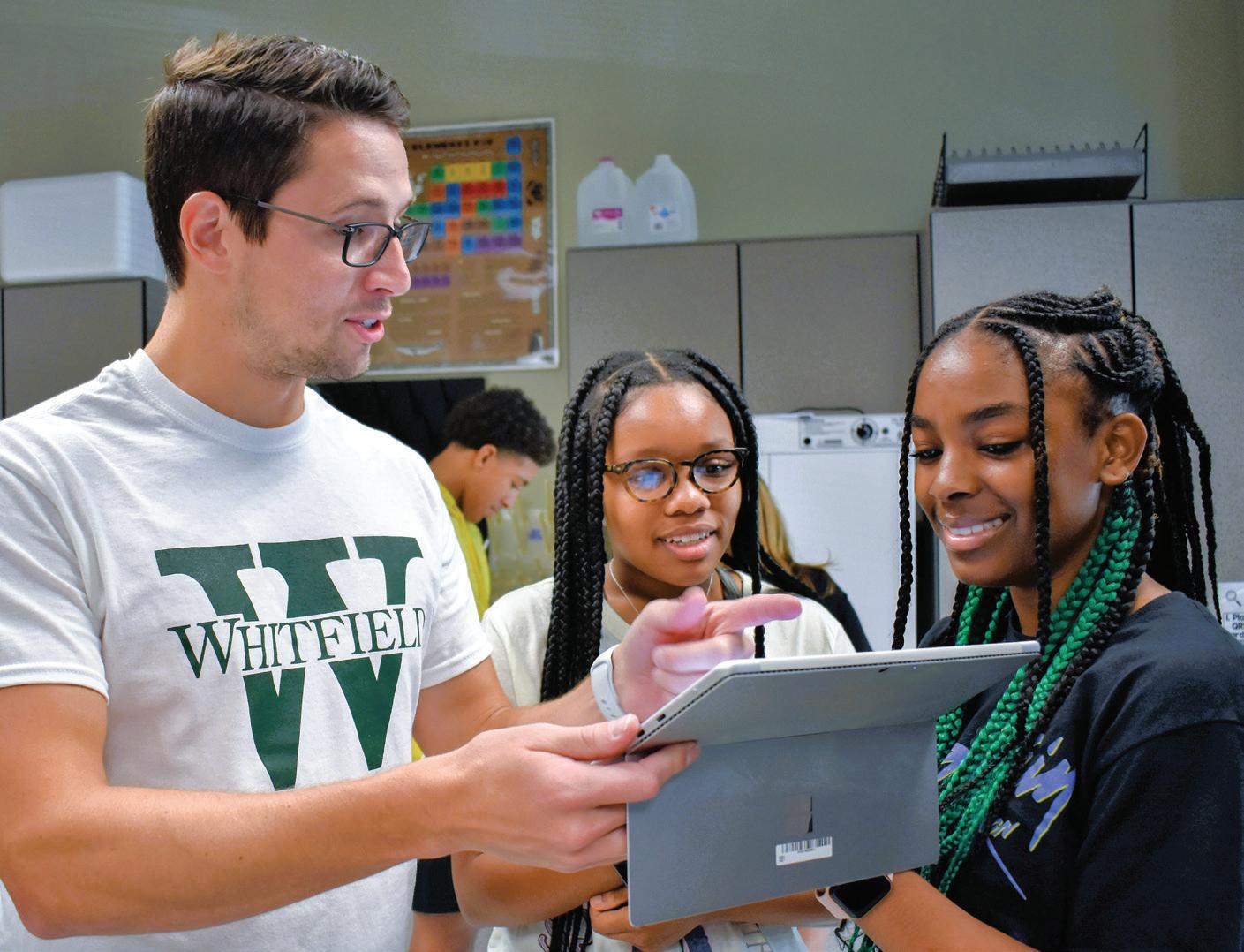
School starts at 8:30 AM and ends at 3:15 PM.
The Advisory program ensures that all students are well-known and supported academically, socially, and emotionally. The program delivers the Habits of Mind & Heart curriculum, which helps students understand their strengths of character, and the contribution this understanding makes to their personal growth. Through this curriculum students also foster an appreciation for the strengths of others in their advisory group and work throughout the year to build trusting relationships.
MIDDLE SCHOOL required course each year UPPER SCHOOL required course each year
Students become skilled, effective, and enthusiastic readers, writers, and communicators. They examine ideas, read critically, make presentations, design media products, and communicate using a variety of technologies.
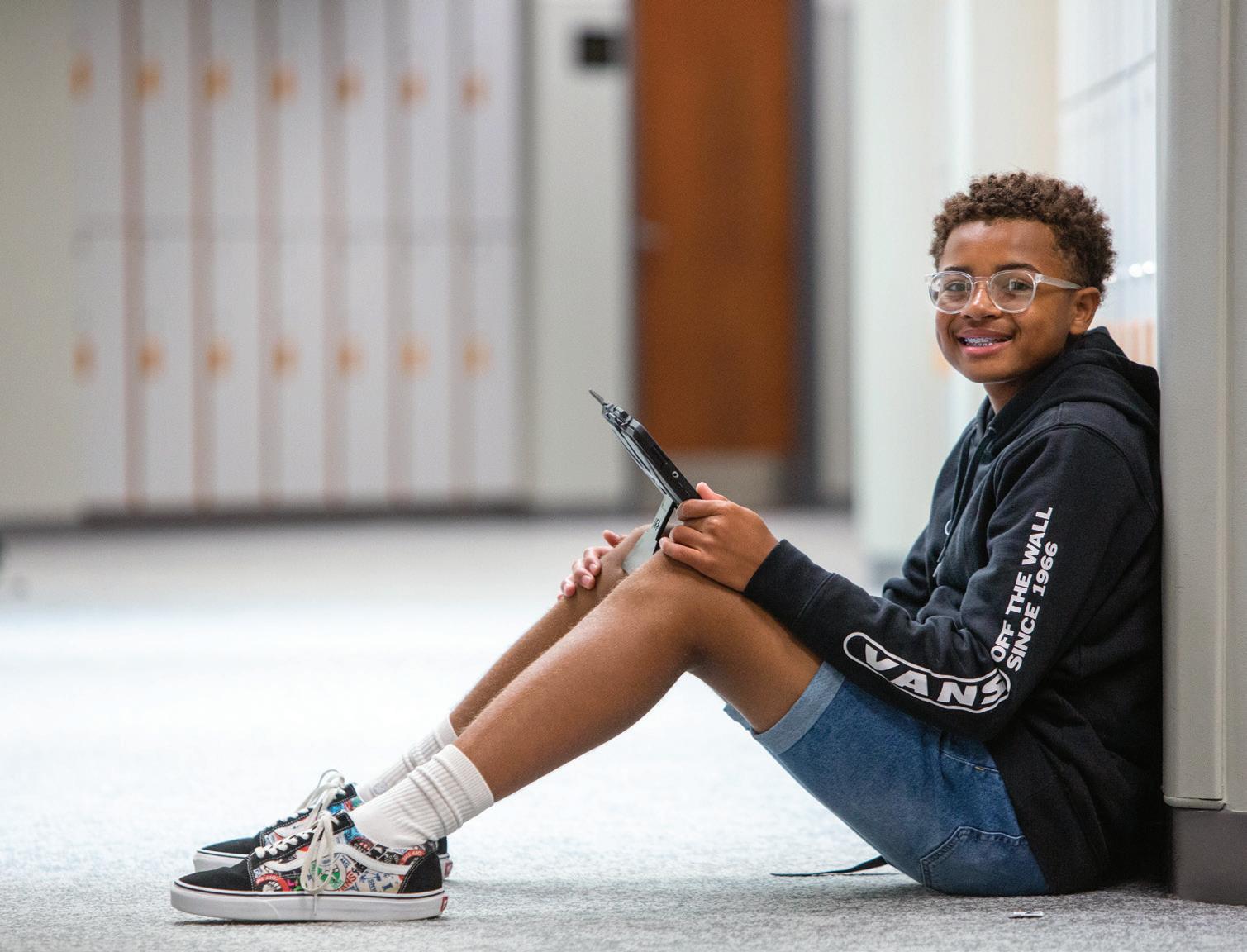
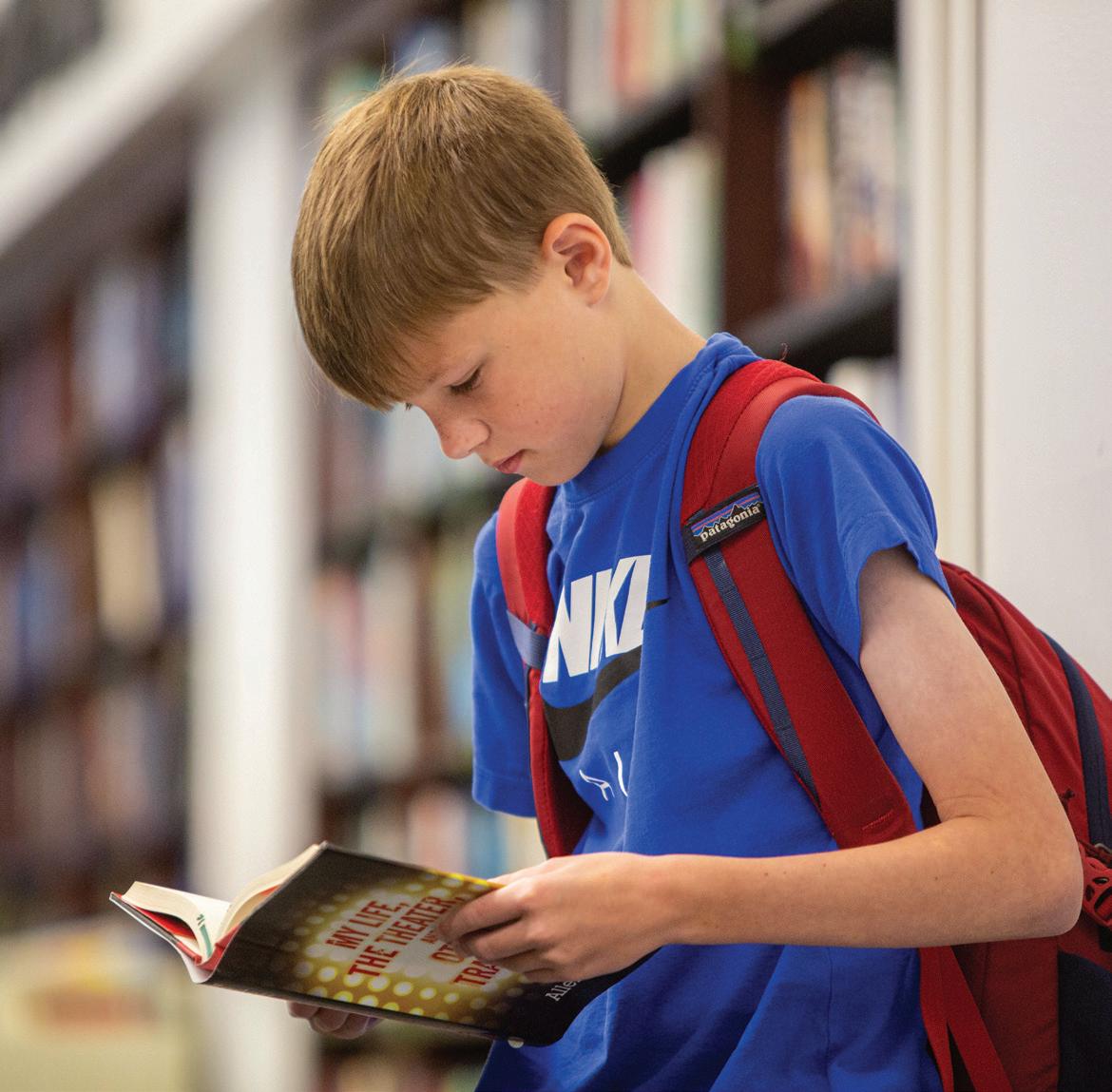
Through writing, students understand audience and purpose, which promotes empathy, appreciation of multiple perspectives, and the importance of effective technique. They learn to draft, revise, edit, and polish their work. Students find their own voice, as well as develop critical thinking and reflection skills.
MIDDLE SCHOOL required course each year UPPER SCHOOL four credits required
Students develop language and communications skills, creative problem-solving strategies, confidence, and perseverance through music, performing, and visual arts classes.
In the visual arts, students develop essential studio techniques and skills, gain an understanding of how to approach art-making as a problem-based process, and create theme through visual imagery.
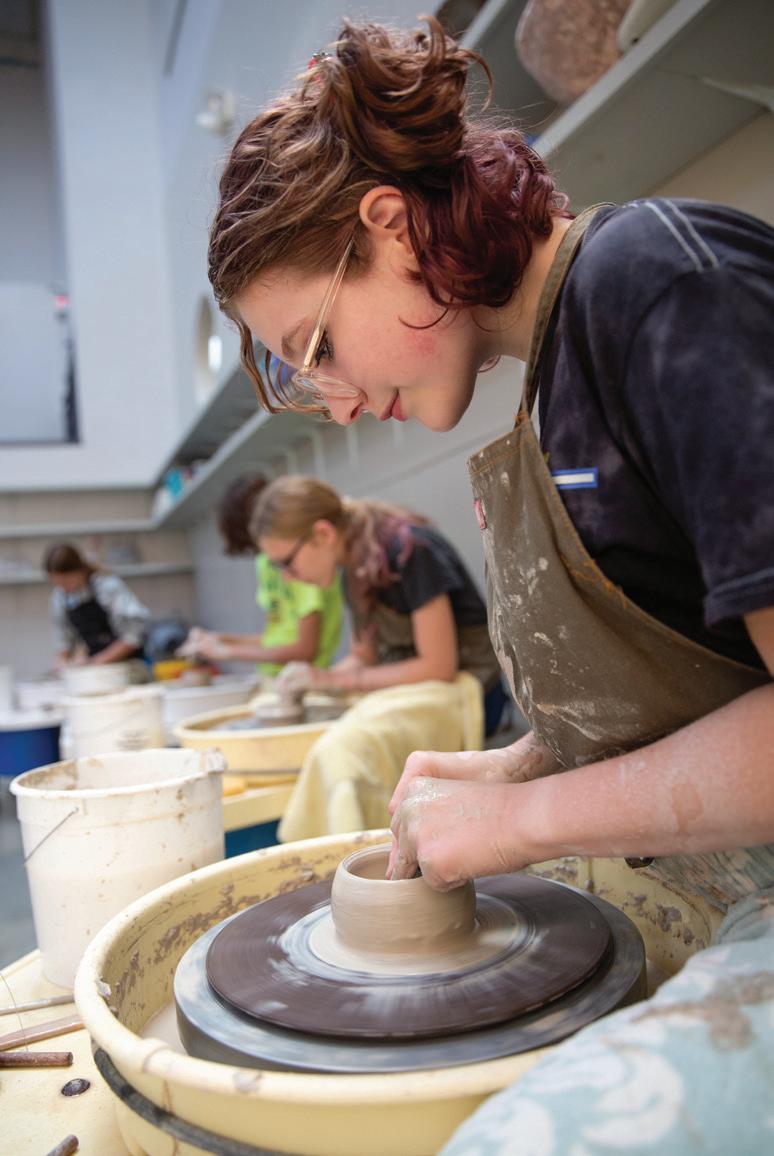
In the theater and the performing arts, students discover and develop their skills and talents, working onstage and behind the scenes to imagine, create, and move others.
The band and choir curriculum challenges students on many levels—as they explore and develop their musical abilities.
MIDDLE SCHOOL required course each year UPPER SCHOOL one credit required
Students develop confidence and important mathematical skills as they learn to apply algorithms and nontraditional strategies to solve problems. Flexible course sequencing supports both those students who progress at an accelerated pace, and those who may benefit from additional reinforcement. Algebraic and geometric concepts are integrated throughout the curriculum, providing students with the opportunity to explore the relationships between these two areas.
Computer science courses are offered through our mathematics department. Upper School elective courses include computer science principles, web design, and software engineering. In addition, the school’s computer science integration specialist works with faculty across all grade levels and departments to incorporate computer science-related skills and concepts. In ninth grade, students take a trimester-long course, Computer Science and Society, as part of the Foundations curriculum.
MIDDLE SCHOOL required course each year UPPER SCHOOL four credits required
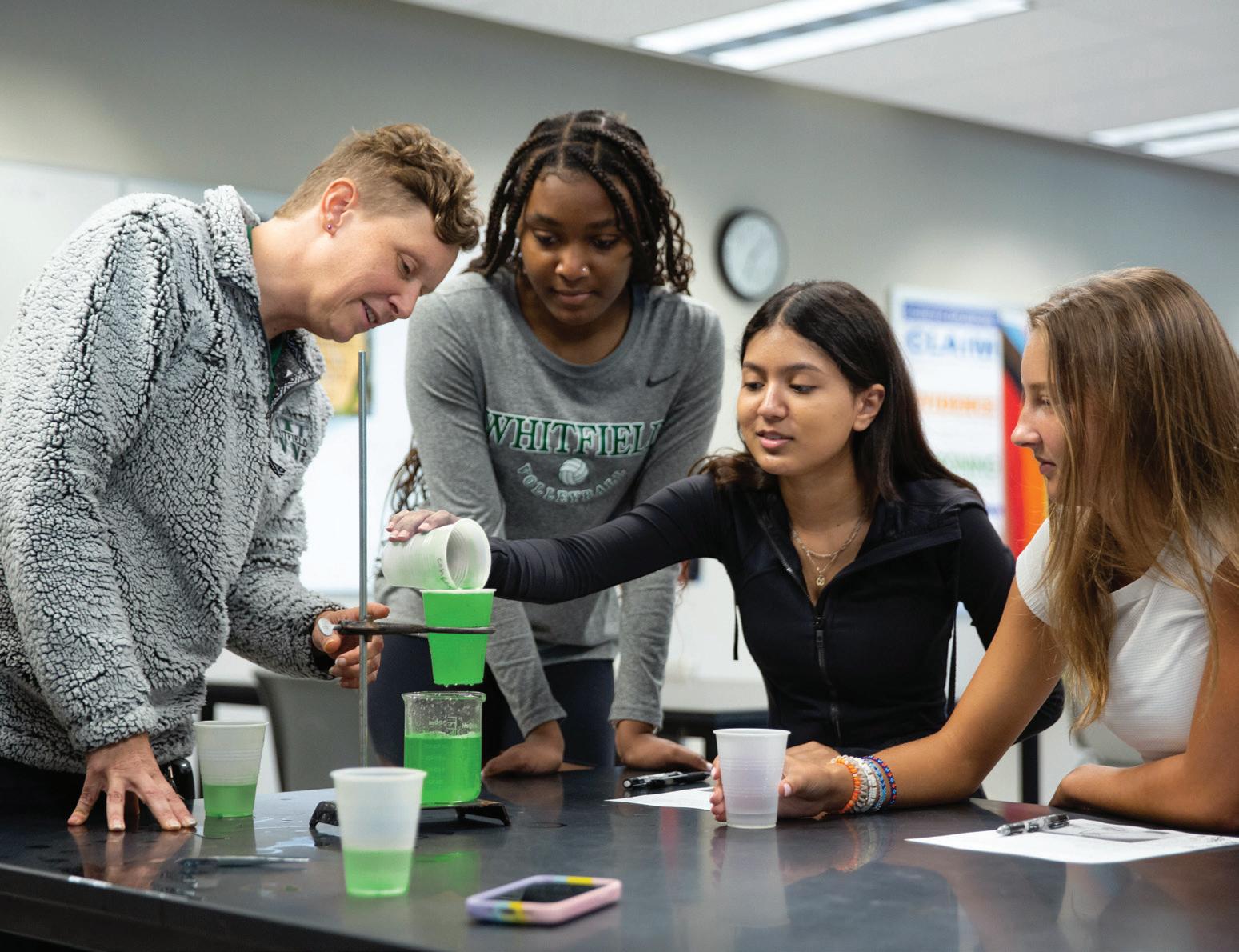
The Physical Education program provides activities to develop students’ awareness of terms, scoring, rules of play, skill techniques, safety principles and strategies for the sports covered in the instructional program. Weight room resistance training focuses on athleticism. Through athletic performance training students develop speed, agility and quickness as well as the habits and awareness necessary for lifelong fitness.
The Physical Education curriculum is based on three areas of health: physical, mental/emotional, and social. The Foundations class in 9th grade focuses on three relevant areas: neuroscience and self, computer science & society, and physiological awareness.
MIDDLE SCHOOL required course each year UPPER SCHOOL one credit of Physical Education / Foundations in Wellness is required for graduation and is taken in the ninth grade
Students develop critical thinking and collaborative skills through immersion in scientific theory, process, and technique. They learn fundamental scientific concepts and how to apply problem-solving skills and ethical standards to their work within a laboratory environment. They develop as technical writers who are well versed in scientific procedure and theory, have an appreciation for the natural world, and can thrive in a demanding college environment.
MIDDLE SCHOOL required course each year UPPER SCHOOL four credits required
Through the study of history, government, geography, psychology, sociology, and economics, students gain an understanding of the behavior and traditions of societies and cultures of the past and the present. The inclusive curriculum focuses on the experience of diverse historical actors and the study of diverse historical narratives. Students learn to integrate, analyze, synthesize, and evaluate both primary and secondary sources and to develop an understanding of the range of human experience across times and space. They master critical thinking, writing, and research skills, and learn to present their ideas through papers, projects, and oral presentations.
MIDDLE SCHOOL required course each year UPPER SCHOOL four credits required
The primary emphasis of the World Languages program is oral proficiency. Students work toward speaking in the target language and gain confidence to navigate successfully through a culture different than their own. Pair/group speaking activities in the target language involve face-to-face communication, active listening with a focused and conscious engagement with a partner, being respectful, and continually engaging in the learning process. Languages offered are French, Spanish, Latin, and Mandarin.
MIDDLE SCHOOL required course each year UPPER SCHOOL four credits required
Scan code to visit www.whitfieldschool.org/academics/curriculum
We believe that strength of character and self-confidence are critically important to success in life. The Habits of Mind & Heart curriculum encourages critical reflection for academic and personal growth, raises social and emotional intelligence, and shapes the personal strengths of our students so that they have the resilience and moral awareness to become productive citizens and leaders.
We believe in a personal commitment to mindful action. Today’s high-tech students are connected and empowered in ways previously undreamed of, and it matters deeply that they uphold their ethical obligations to self, family, and community.
Our student body represents all of the greater St. Louis area and much of the world. This rich diversity deepens the learning experience of every student and the preparation of each for college and beyond.
Through the practice of dialogue, equity, and justice, we help students become engaged members of our school community as well as the other communities to which they belong.
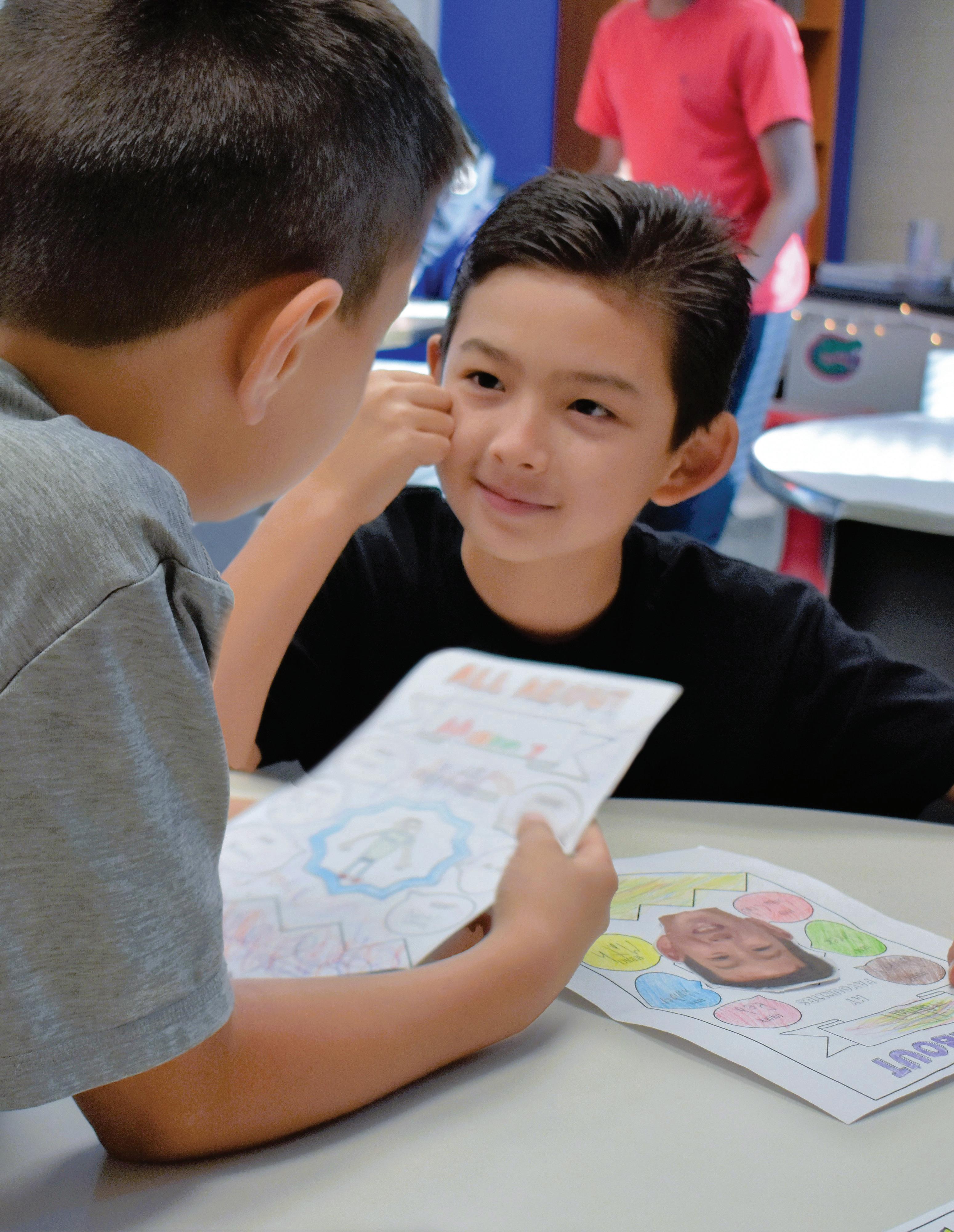
We practice a willingness to see things as they are, not as we want them to be, as well as a willingness to be curious and accepting.
We create opportunities for all students to develop as leaders, allowing them to make a difference, take a stand and become role models for others.
We challenge our students to seek deeper understanding, to make connections and draw conclusions, and to learn the discipline of a scholar. Teachers serve as facilitators of the learning process, while students engage in the pursuit, application, and creation of knowledge.
Scan code to visit www.whitfieldschool.org/about/habits-of-mind-and-heart
The college counseling program—beginning in middle school—features an extraordinary level of individualization and curricular integration, with an emphasis on choosing schools where students can flourish. Whitfield graduates are self-assured, kind, culturally and technologically competent and prepared for the global realities they will face in college and beyond.
Whitfield students have earned over $15.5 million in merit scholarships over the last five years, and attend some of the nation’s leading colleges and universities.
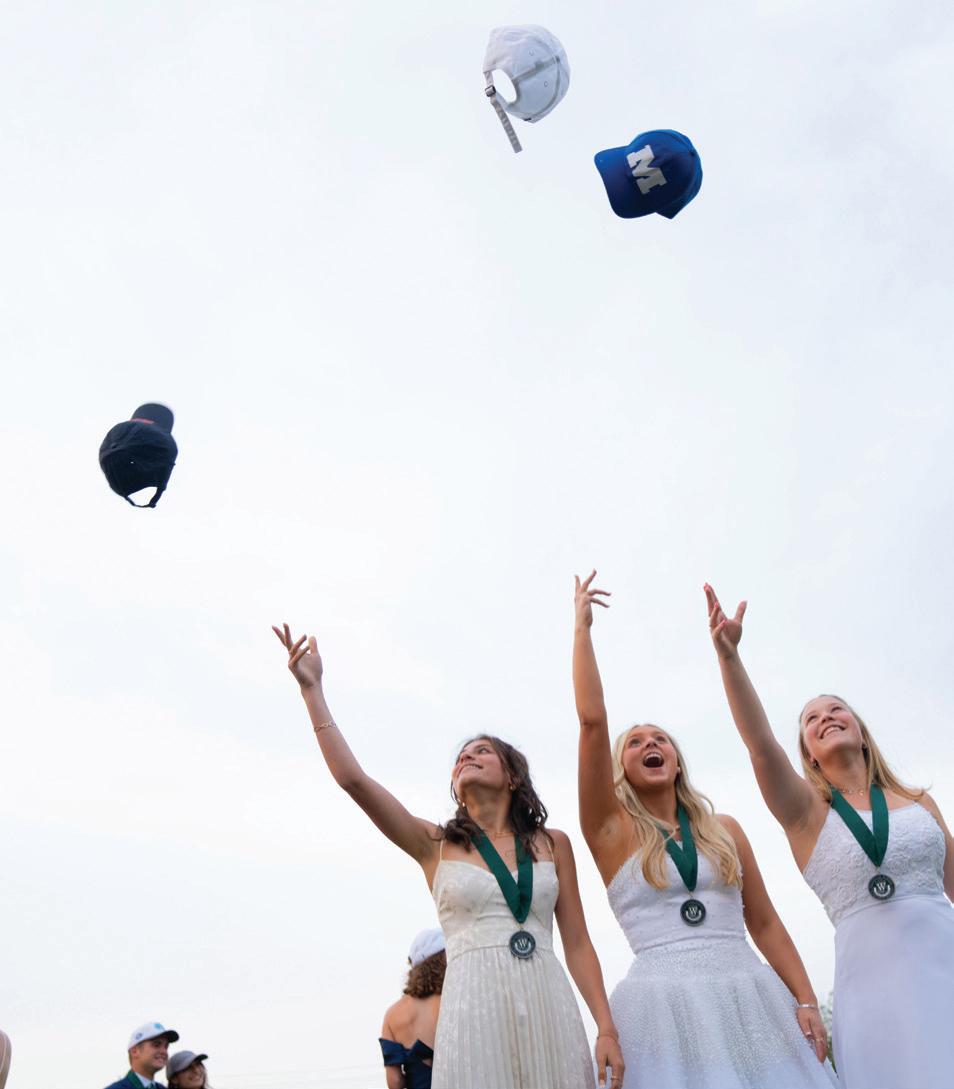
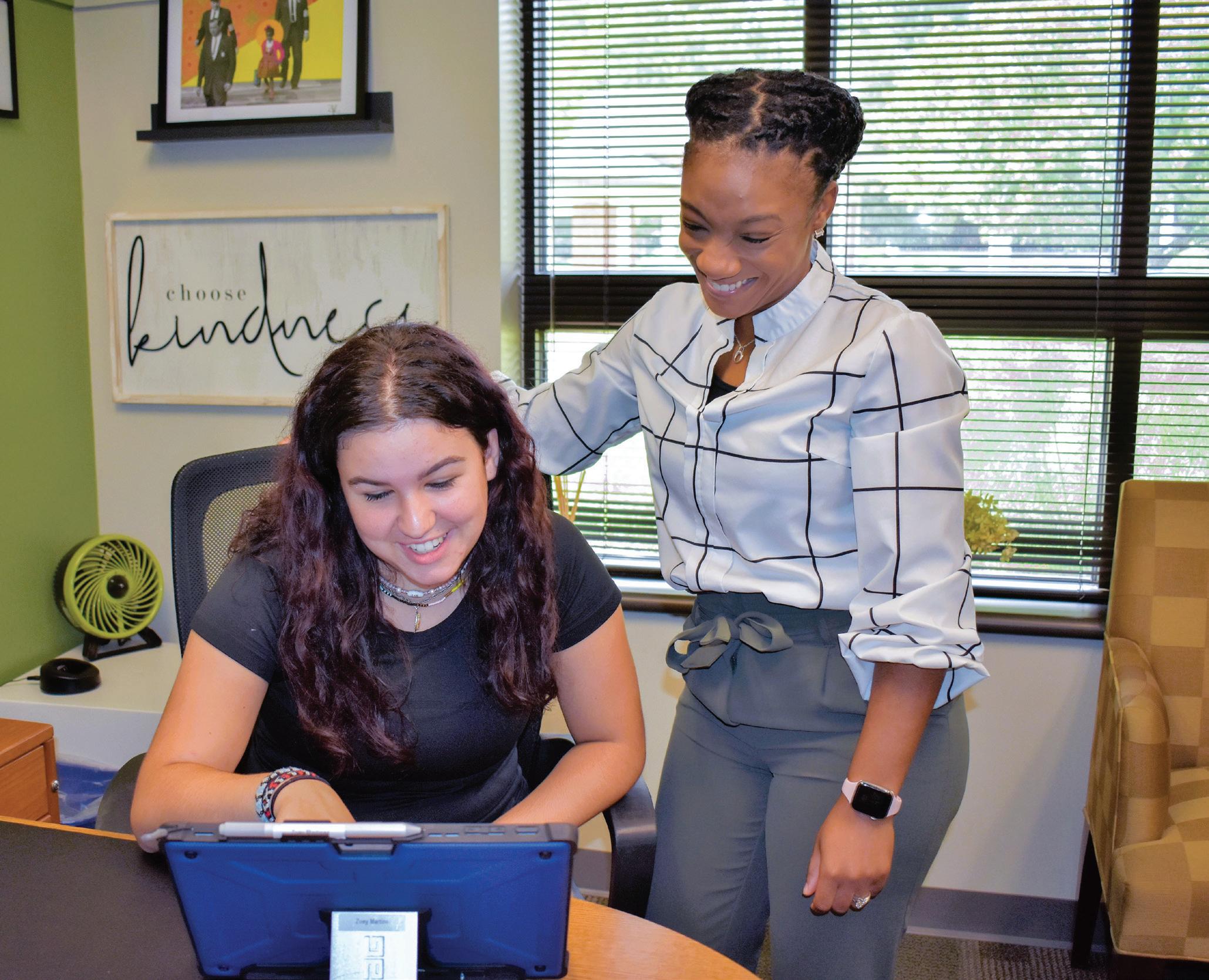
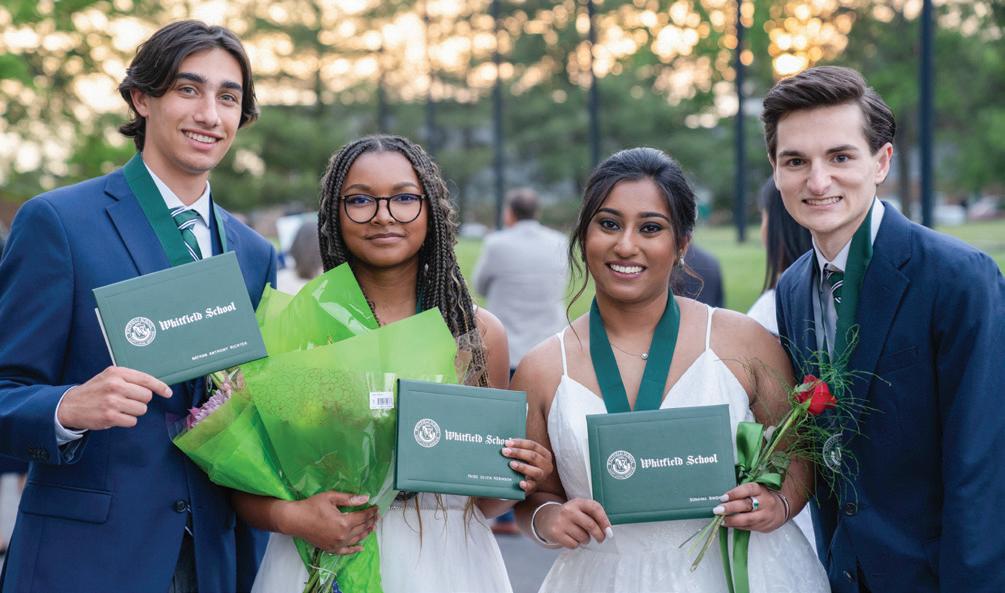

A selection of the schools Whitfield graduates have chosen to attend over the last five years:
American University
Boston University
Butler University
Case Western Reserve University
Chapman University
Dartmouth College
DePauw University
Emory University
George Washington University
Grinnell College
Howard University Indiana University
Loyola University Chicago
Macalester College
Morehouse College
Northeastern University
Northwestern University Pepperdine University Purdue University Rhodes College
Rose-Hulman Institute of Technology Saint Louis University
Savannah College of Art and Design Southern Methodist University Stanford University Syracuse University Trinity University Tulane University Tufts University United States Naval Academy University of Denver
University of Miami
University of Michigan-Ann Arbor
University of Missouri-Columbia
University of North Carolina
University of Notre Dame University of Pennsylvania University of Rochester University of Southern California University of Tulsa
University of Washington, Seattle University of Wisconsin-Madison Vanderbilt University Washington University in St. Louis
Received more than $4 million per year of college in scholarships
The 70 graduates will be attending 51 different schools
72% of students chose private colleges and universities 75% of students chose out-of-state or international colleges
19 graduates have committed to play collegiate athletics
Whitfield has one of the most successful athletic programs in the area, claiming 38 state championships, earning multiple coach and player of the year awards, and sending numerous alumni to play at the collegiate level. We emphasize teamwork, personal growth, sportsmanship, health and fitness, and the development of leadership and time management skills. Our student-athletes compete to the best of their abilities, develop positive character traits, and strengthen school spirit within our close-knit Whitfield community.
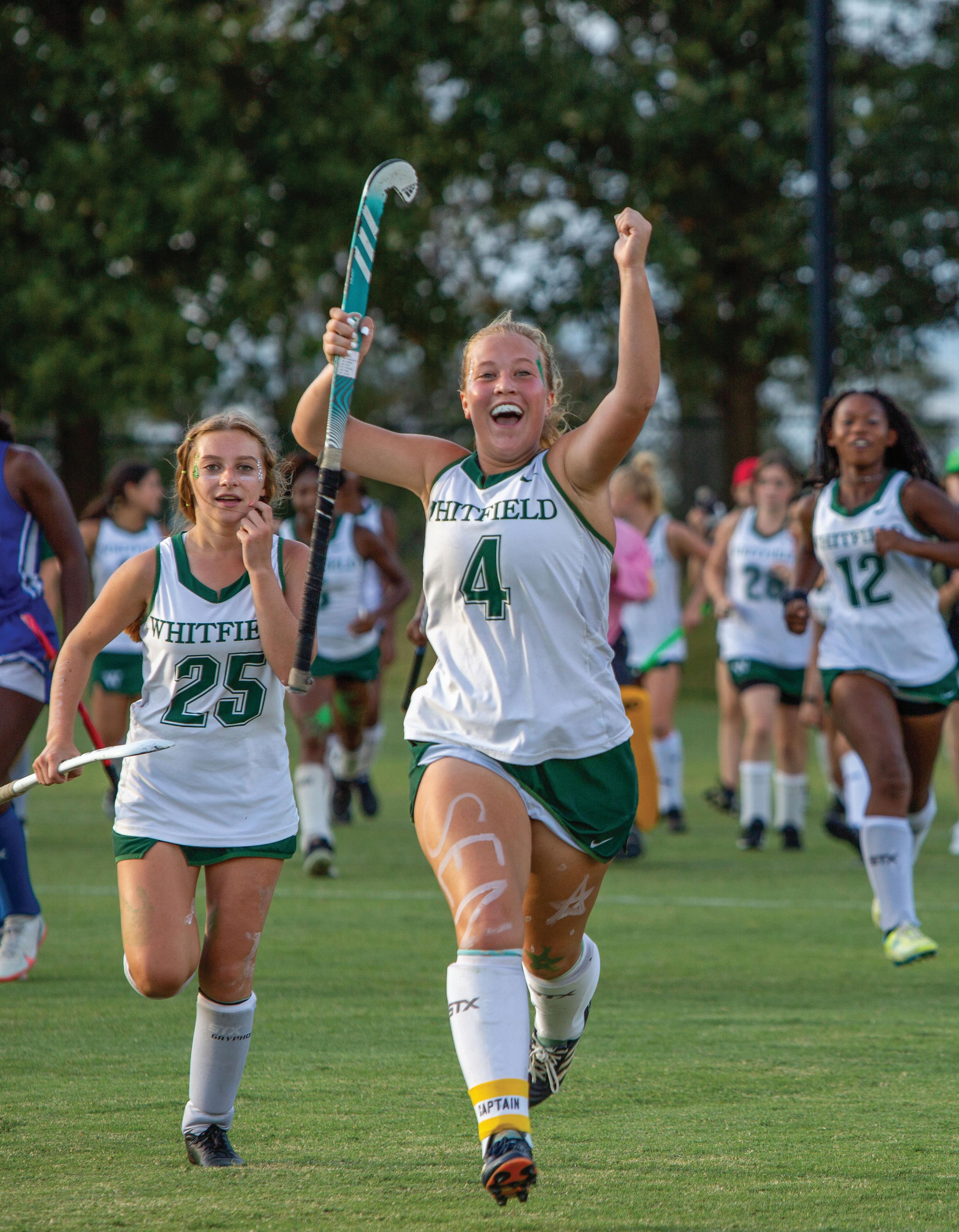
During the 2021-22 school year, the Warriors won state titles in boys soccer, girls soccer, and wrestling; crowned individual state champions in girls and boys tennis; and finished as the state runner-up in girls basketball and boys track and field. In June of 2022, Whitfield was named the Small Schools Program of the Year by stlhighschoolsports.com.
Team sports allows young people to further develop athletic skills, improve communication skills, feel a sense of community, and make lasting friendships. Our no-cut policy allows all students to explore new athletic activities based on their interest, regardless of prior experience. 80% of upper school students choose to play a sport.
Winning isn’t the only goal for middle school sports; sportsmanship, skill-building and team play are paramount. Rules interpretation, team strategy and tactics are taught on a consistent basis both on the practice field and in physical education classes. Coaches work to develop the self-esteem of each individual participant, promote sportsmanship and exercise, enhance socialization, and build class camaraderie.
Fall
Cross Country - Co-ed Dance - Co-ed Field Hockey - Girls Football (co-op with Principia) Soccer - Boys Tennis - Girls Volleyball - Girls
Cross Country - Co-ed Field Hockey - Girls Soccer - Boys Volleyball - Girls Winter Basketball - Girls Basketball - Boys Cheerleading - Co-ed Dance - Co-ed Wrestling
Basketball - Girls Basketball - Boys Cheerleading - Co-ed Dance - Co-ed Wrestling Spring Baseball Golf - Co-ed Lacrosse - Girls Soccer - Girls Tennis - Boys Track & Field - Co-ed Volleyball - Boys
Baseball Lacrosse - Girls Soccer - Girls
Scan code to visit www.whitfieldschool.org/athletics
State Championships District Championships Individual state medalistsFor many families, transportation is a major consideration when it comes to choosing a secondary school. While Whitfield’s location is convenient for many, it presents a challenge to others. To assist, we offer a shuttle bus for families who live along the Highway 40/Clayton Road corridor.
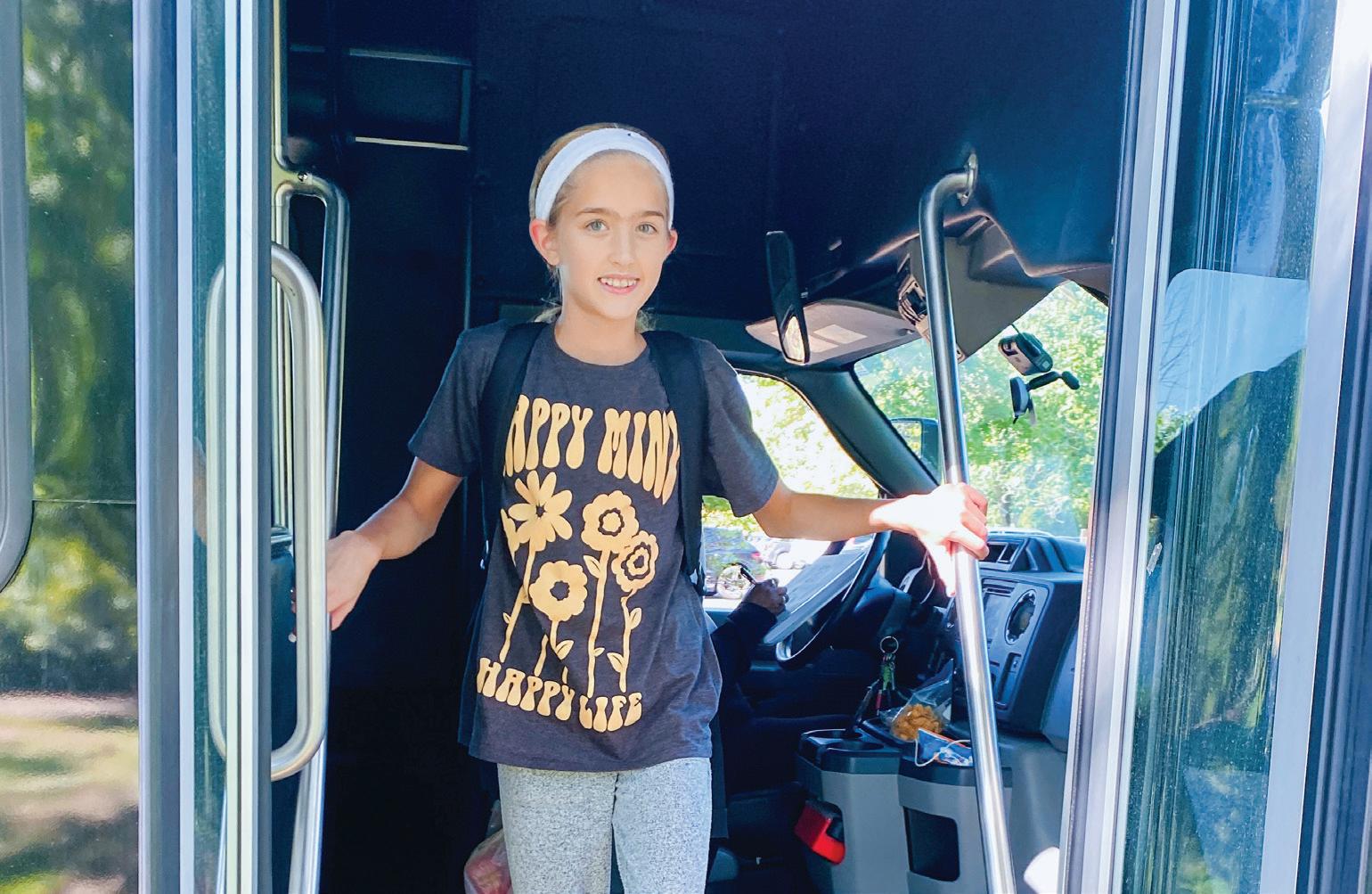
Whitfield School is committed to making its educational experience convenient, accessible, and safe. We hope you will consider the availability of this transportation as your family discusses the important decisions surrounding your secondary school search.
Clubs led by Students
Admissions Club
Book Clubs
Student Clubs provide an opportunity for students to explore their interests and passions outside the classroom, develop leadership skills, and positively contribute to the Whitfield community.
Garden Club Green Scene (spirit club)
Business and Entrepreneurship Club
Climbing Club
College Counseling Crew
Community Service Club
Debate Club
Diversity Council
Esports Film Club
Fishing Club
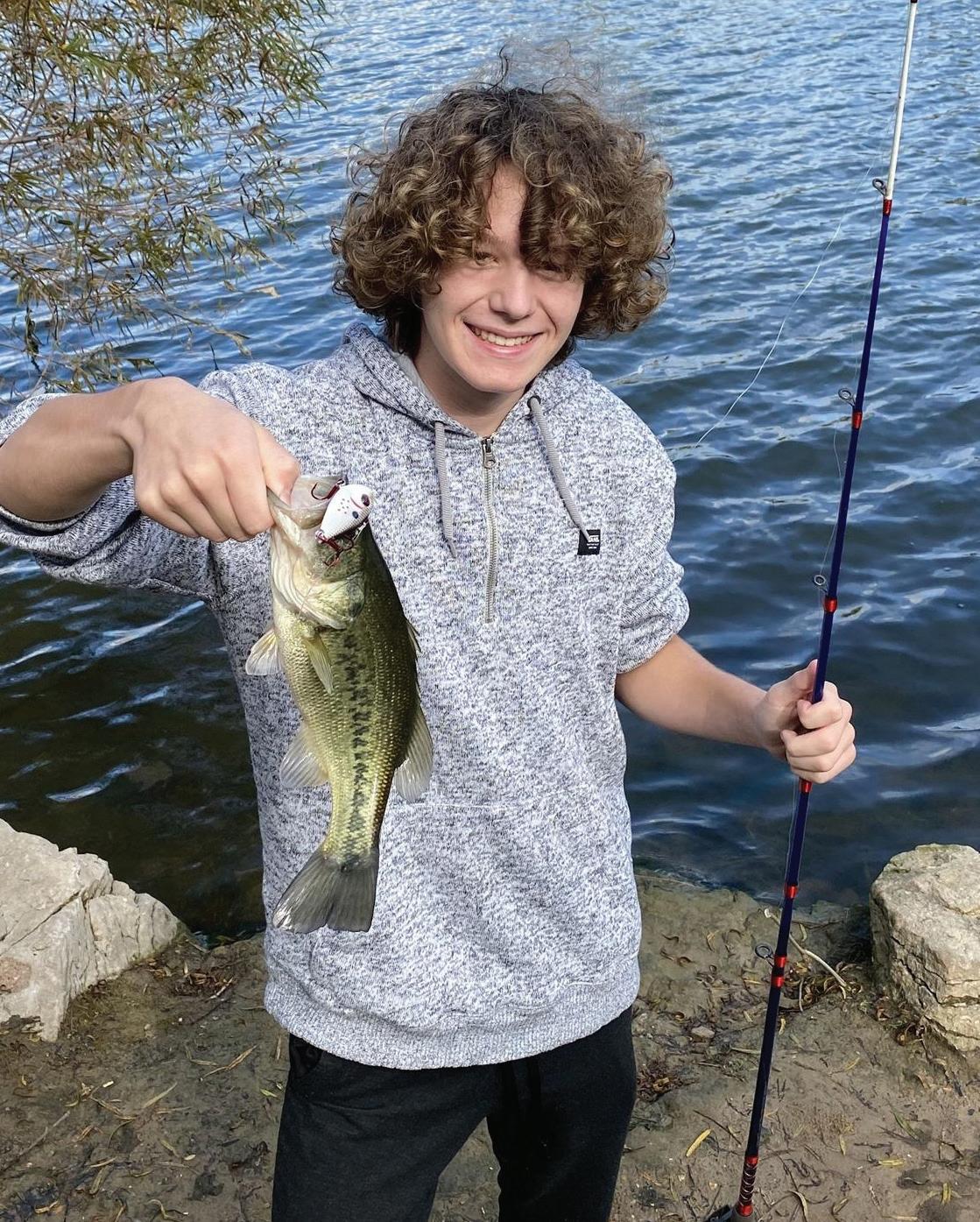
Math Club
Mindfulness and Meditation Club Model UN Ping Pong
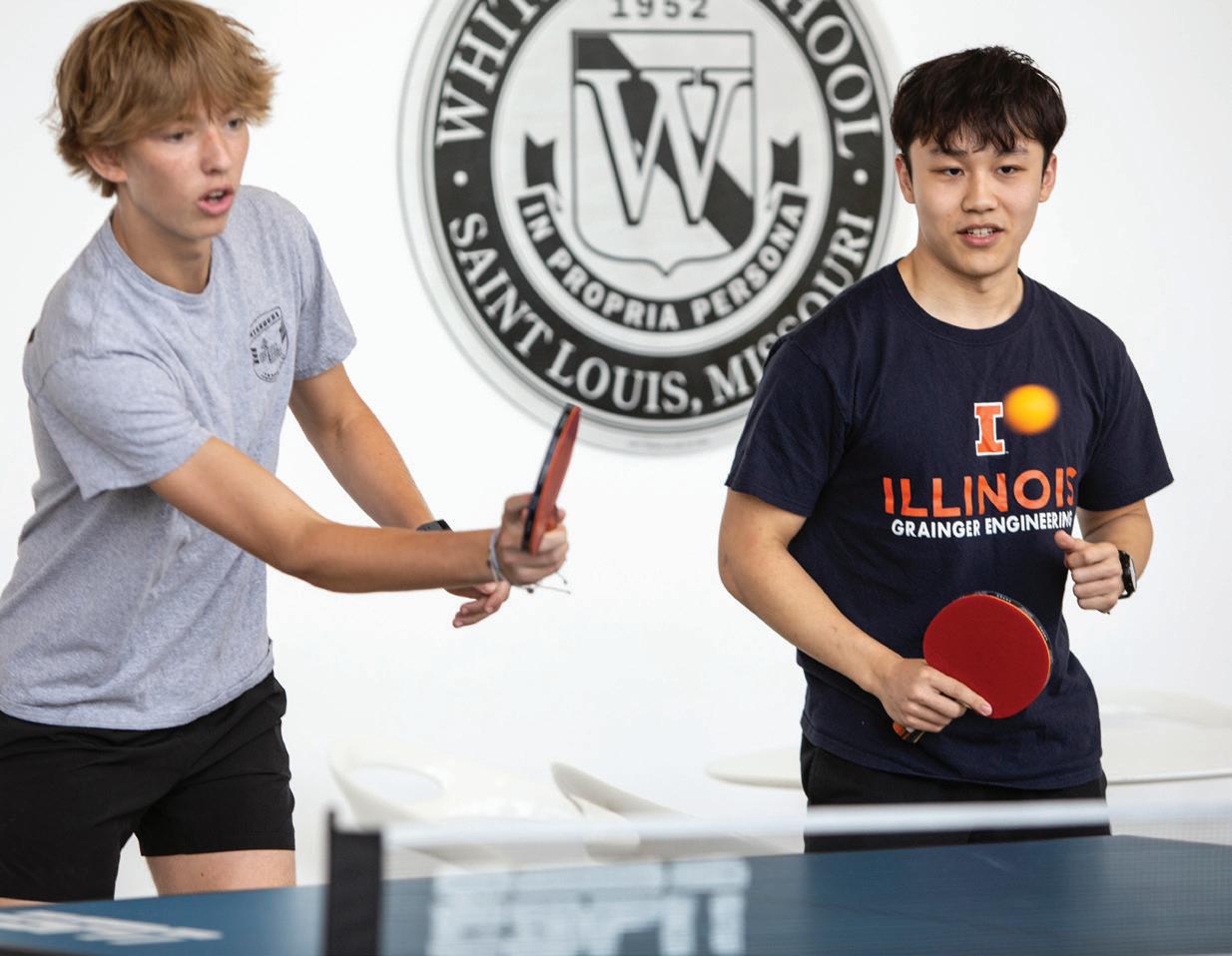
Perspectives (literary magazine)
Student Council
Technology Student Association (TSA)
Thespian Society
Yearbook
Please note that, clubs change based on student interest. Have an idea for a club you don't see on our list? Start a new one! New clubs form each year!
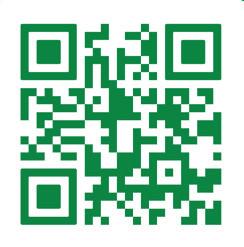
Scan code to visit www.whitfieldschool.org/student-life/clubs-and-organizations
Affinity Group meetings provide a facilitated, affirming space for students who share an identity, background, affiliation or allyship. These groups explore and reflect upon their own identity, celebrate shared culture and traditions, and discuss common experiences, needs, and challenges. Affinity spaces also offer an opportunity for mentorship, support, and community building.
Black Student Union (BSU)
Fellowship of Christian Athletes (FCA)
Gender & Sexuality Alliance (GSA)
International Student Union (ISU)
Jewish Student Union (JSU)
Mixed Student Association
Muslim Student Union (MSU)
Women’s Alliance
Our 25 passenger van shuttles students once in the morning arriving at Whitfield around 8:00 AM. This gives students time to meet with teachers and/or socialize with friends before school starts at 8:30 AM. The shuttle runs twice in the afternoon to accommodate students who participate in after school activities. The first departure leaves campus at 3:40 PM and the second at 5:45 PM.
The shuttle route changes slightly from year to year, tailored to the needs and homes of the families utilizing this service.
The cost for the shuttle is $16.00/day for round trip service and $8.50 for one-way. Families who would like to use the service in the morning need to commit and pay for every morning but afternoon services can be used and paid for as needed.
S. Mason Rd. STL, MO 63141
Centrally located at the corner of Ladue & Mason Roads
Scan code to visit www.whitfieldschool.org/admission/shuttle-bus
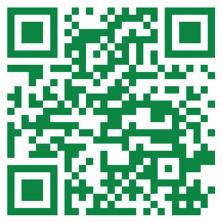
Whitfield School was founded in 1952 by John Barnes and Allan Cole. During the mid-1980s, the school experienced a period of growth, both in physical space and student population. Under the leadership of then Head of School Mary Leyhe Burke, Whitfield became a nationallyrecognized leader in the progressive education movement. It was during this time that the School developed the tenets that underlie the school's academic approach. In 2012, John Delautre became head of school. During his tenure, the school updated its mission statement and continued to focus on character, scholarship and global citizenship. On July 1, 2022, upon Mr. Delautre's retirement, Dr. Chris Cunningham joined Whitfield as head of school. Dr. Cunningham was previously the assistant head of school and dean of faculty at the Lawrenceville School in New Jersey. He graduated Phi Beta Kappa with Distinction and Honors from Stanford University and completed his Ph.D. at Duke University. Dr. Cunningham is charged with continuing to refine and strengthen Whitfield School.
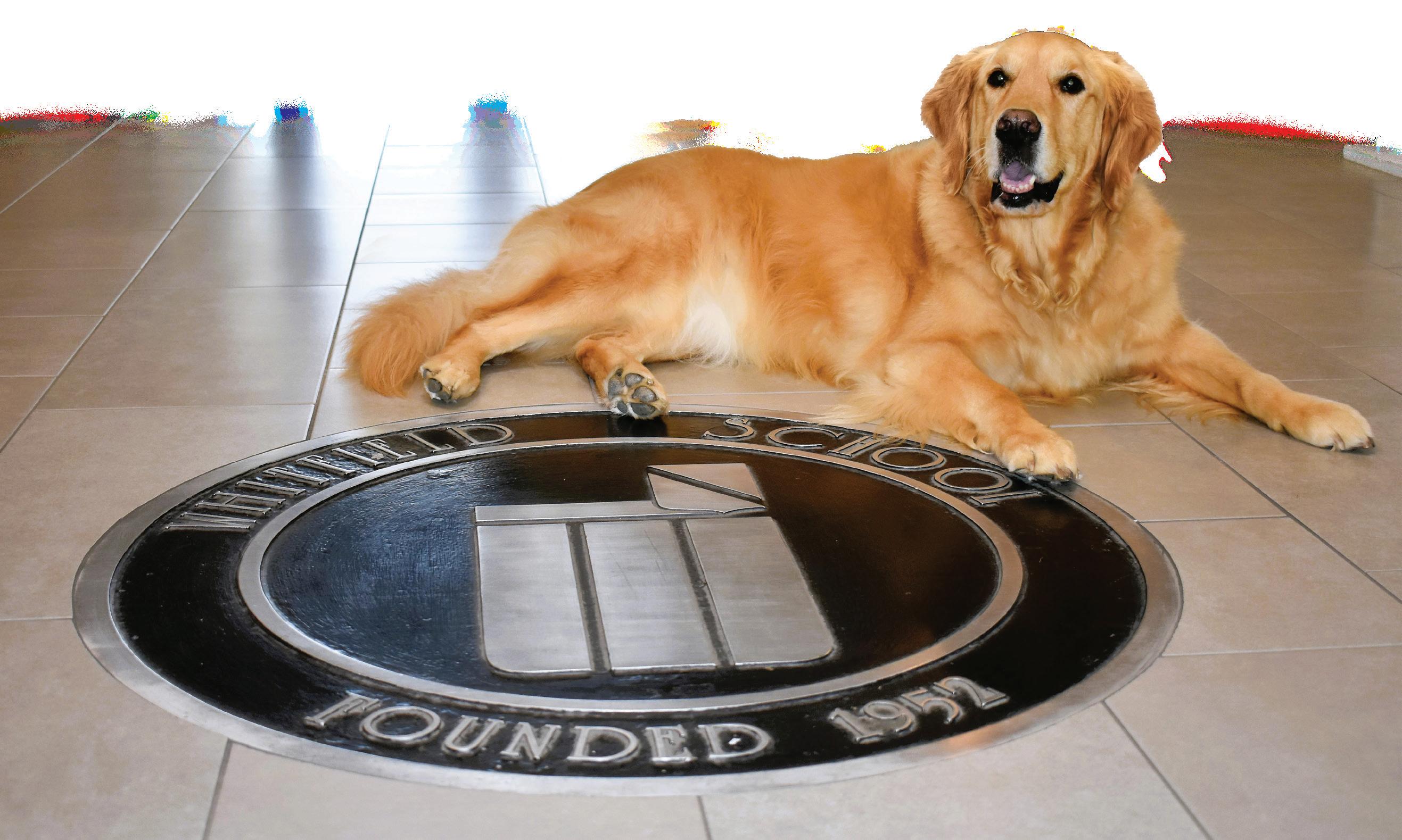

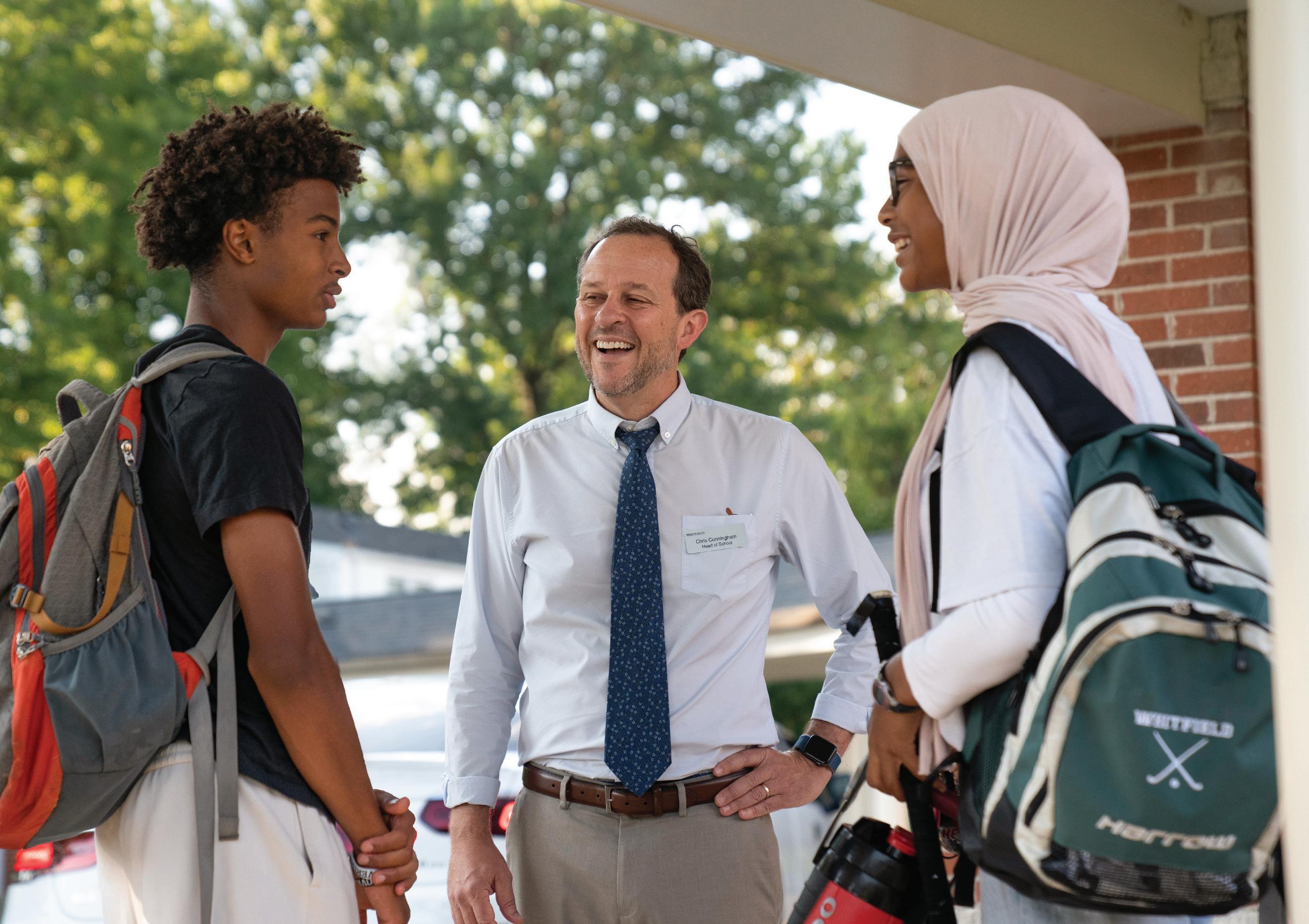
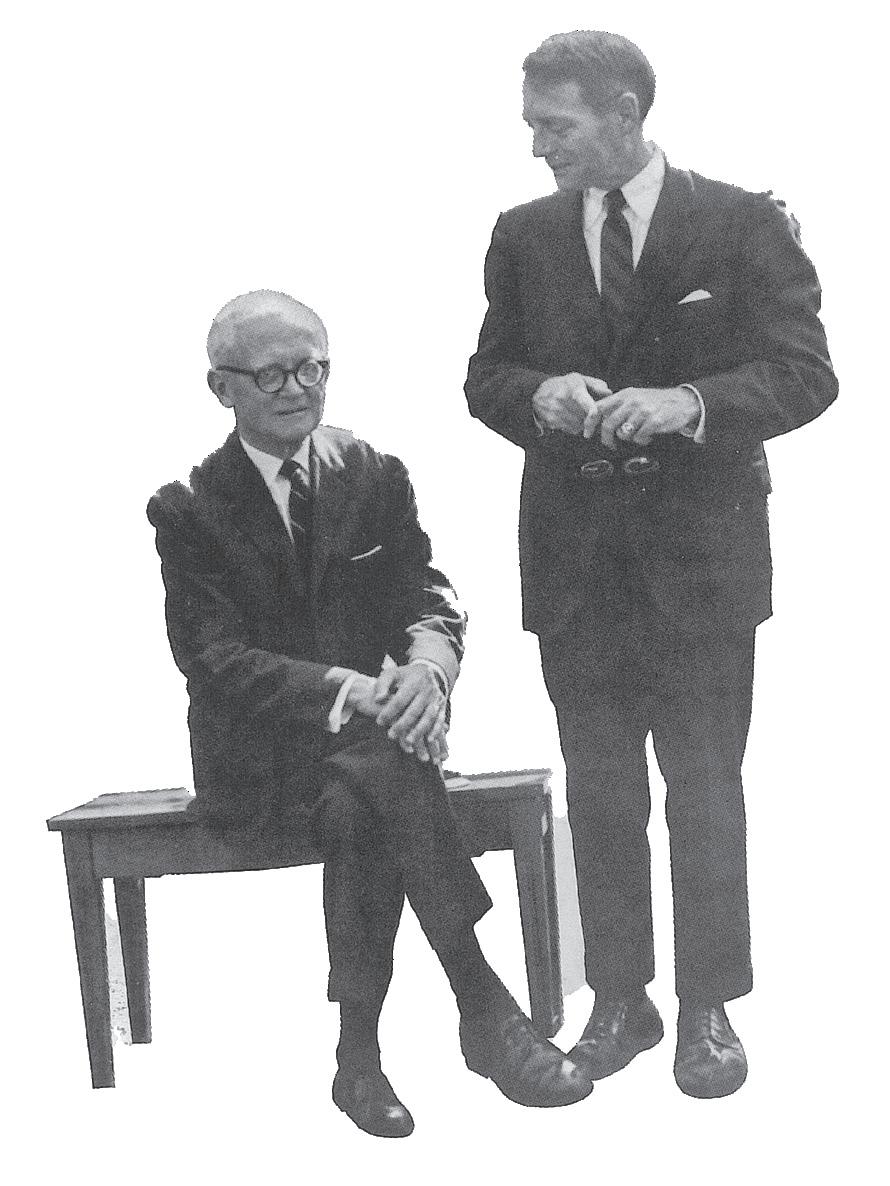
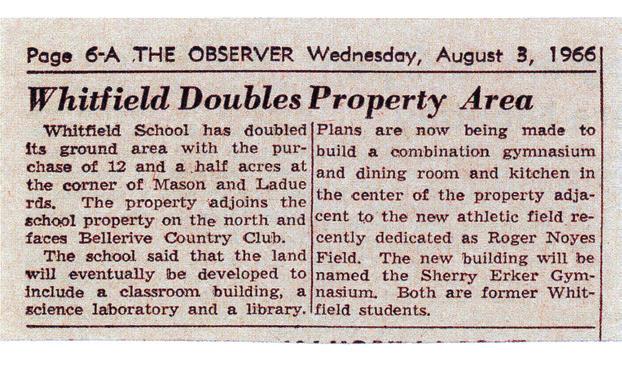

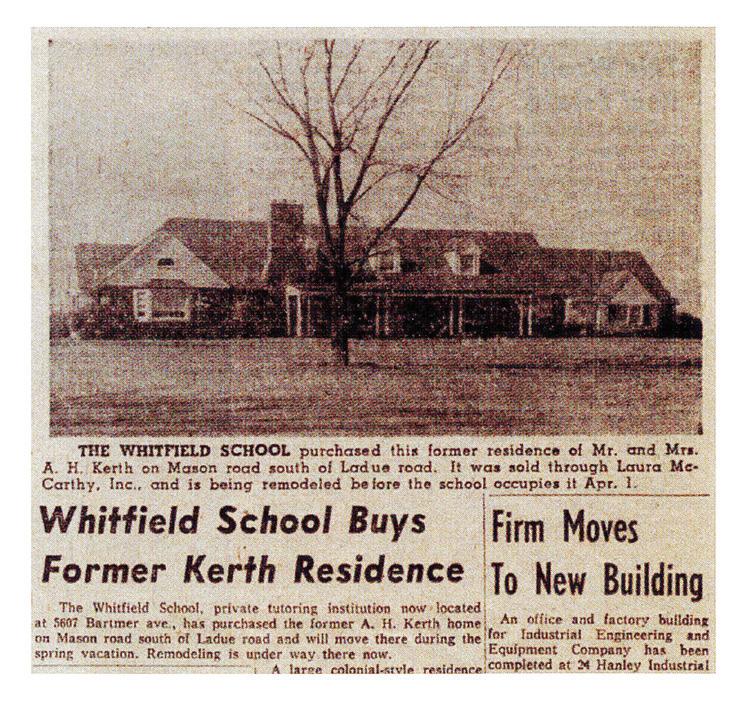 Founders John Barnes and Allan Cole
Founders John Barnes and Allan Cole
Many pieces of the application can be completed using the STANDARD APPLICATION ONLINE (SAO) (ssat.org/sao):
o Student Profile, Parent Statement and Student Essays
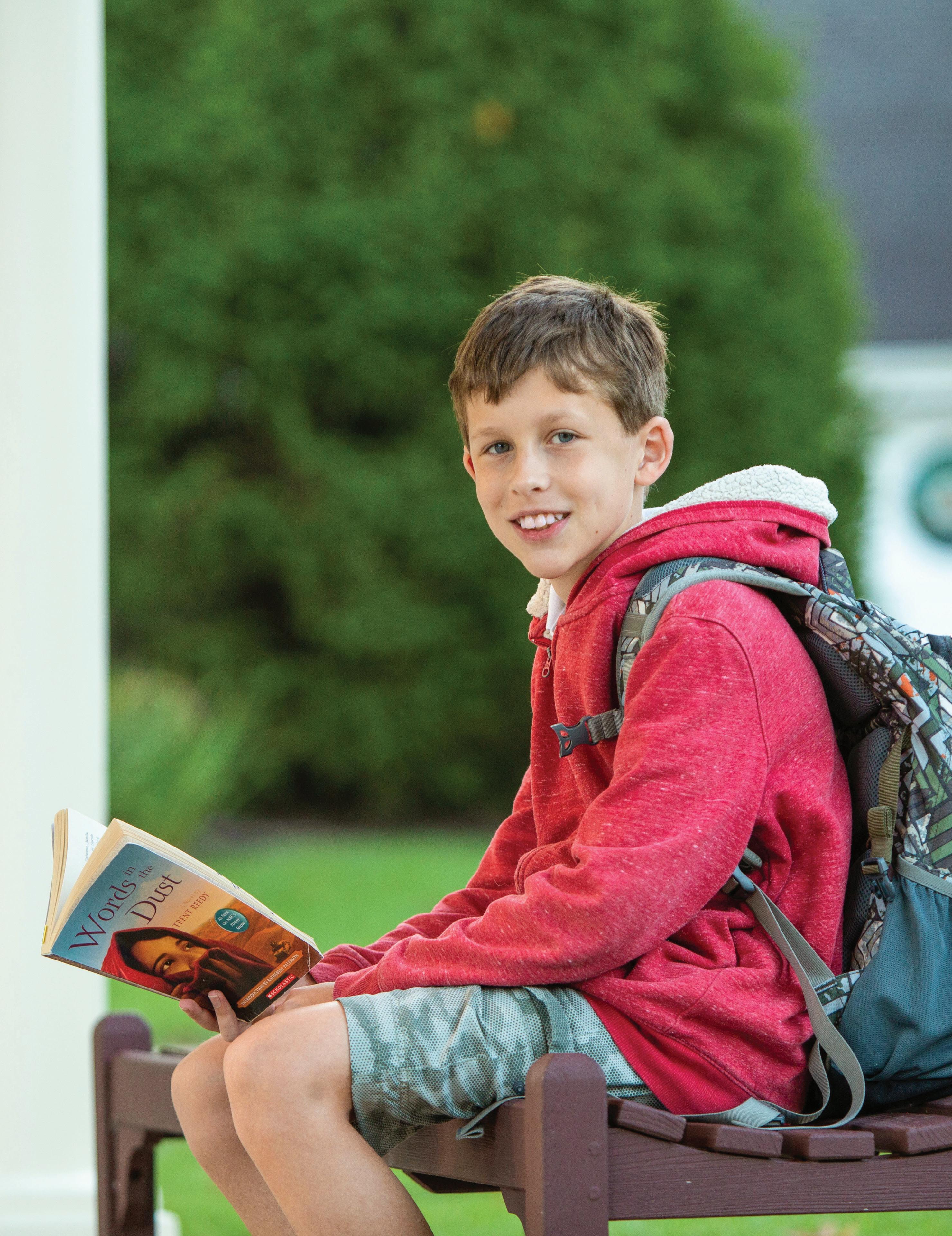
o Student Records Request
o Teacher Recommendation Request
o Personal Reference Request
o $50 Application Fee
SSAT EXAM: To register for the SSAT, please visit ssat.org. Whitfield's school code is 8196. For questions, please call 609.683.4440.
or ISEE Exam: To register for the ISEE, please visit erblearn.org/families/isee-by-erb. Whitfield's school code is 263774. For questions, please call 866.683.2335.
FAMILY INTERVIEW: The family interview, which includes you and your student, will be conducted either virtually or in person with one of our admission office staff members. We look forward to getting to know you, hearing what you seek in a secondary school, and answering your questions about Whitfield. To help us have a more informed conversation, please submit the Student Profile, Parent Statement, and Student Essays prior to the interview.
Each family's financial outlook is unique. Whitfield prides itself on creating a diverse school community, inclusive of economic diversity. Therefore, Whitfield endeavors to offer financial aid to those who qualify.
To apply, please navigate to the following link and complete the financial aid application. www.solutionsbysss.com/parents/resources
Applying for financial aid does not impact admission decisions, however the financial aid application is due at the same time as the application for admission. The process for financial aid is competitive as funds are limited. It is imperative that families seeking financial aid adhere to the deadlines. For questions, please call the SSS support line at 800.344.8328.